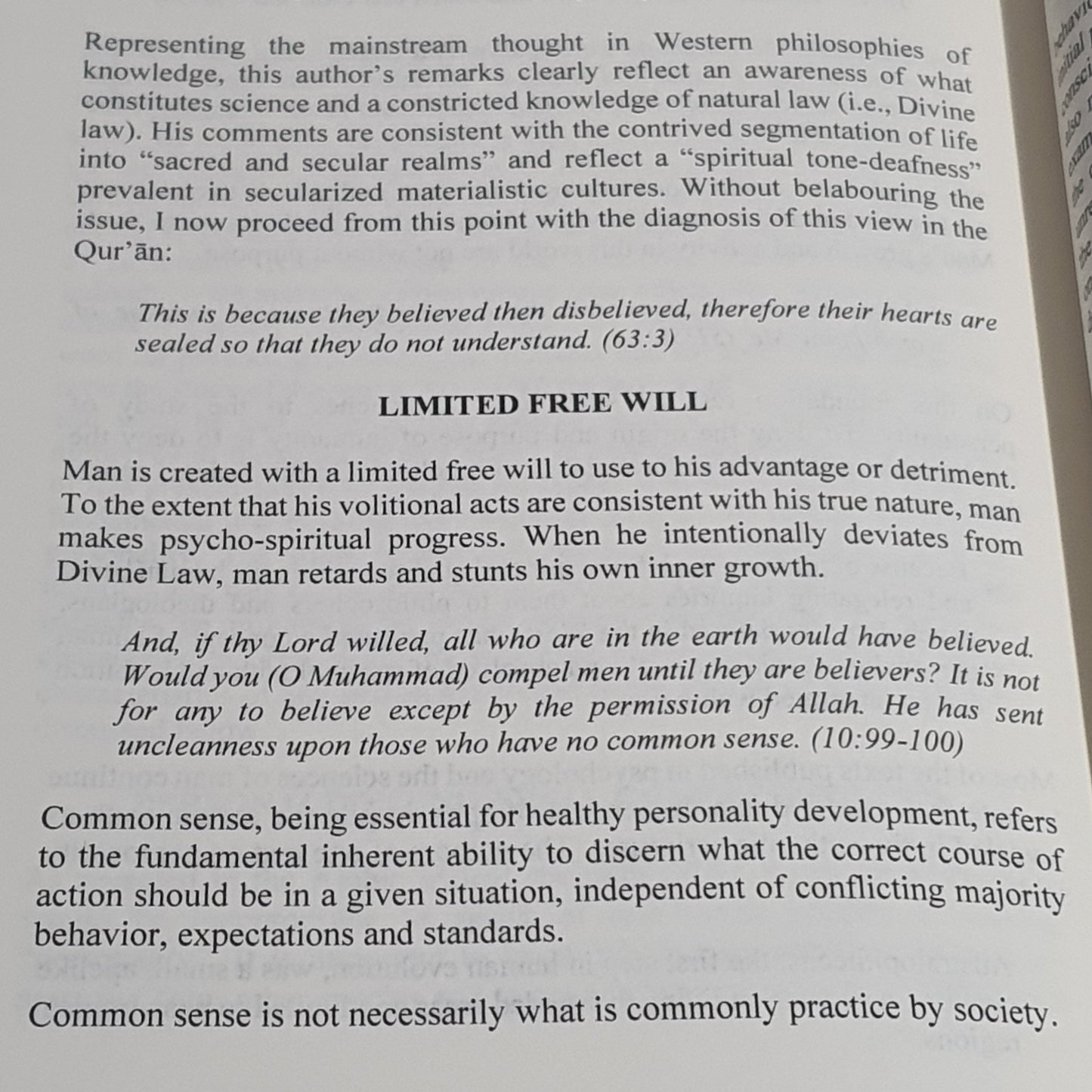Out of stock
Psychology of Personality: Islamic Perspectives
Psychology of Personality: Islamic Perspectives
Couldn't load pickup availability
Amber Haque, Yasien Mohamed (Editors)
Abdallah Rothman (Foreword)
This is a collection of select papers on human nature and personality from an Islamic perspective which incorporates religious and transcendental concepts based on the Quran and early Muslim scholars.
Contents
Part 1: Cosmic Anthropology and the Innate Disposition of Man
1: Human Natural Disposition (Fitrah) / Yasien Mohamed
2: The Concept of Man as a 'Small World' / Yasien Mohamed
3. Human Nature in Secular Psychology: An Islamic Critique / Malik Badri
4. Human Nature from a Comparative Psychological Perspective / Mustapha Achoui
5: The Place of Human Nature in Ibn Khaldun's Thinking / Mahmoud Dhaoudi
Part 2: The Islamic Concept of Soul, Spirit and Heart
6. Nature of Soul: The Philosophy of Mulla Sadra / Fazlur Rahman
7. The Nature of Man and the Psychology of the Human Soul / Syed Muhammad Naquib al-Attas
8. The Heart and Personality Development / Manzurul Huq
9. Pathology of the Heart in the Quran: A Metaphysics-psychological Explanation / Absar Ahmad
10. Traditional Islamic Psychology / Laleh Bakhtiar
Part 3: Human Motivation and Personality Types in the Quran
11. Human Motivation: An Islamic Perspective / Shafiq Falah Alawneh
12. The Drives of Human Behaviour in the Quran / Yasien Mohamed
13. The Concept of Personality in Islam / Rashid Hamid
14. The Islamic Personality: A Sequential Model / Saiyad Fareed Ahmad
The International Association of Islamic Psychology has republished this classic in Islamic Psychology literature which has been out of print for almost a decade. First published in 2009, the original volume edited by Amber Haque and Yasien Mohamed is now available again, with a new foreword by Abdallah Rothman. Psychology of Personality: Islamic Perspectives is the first edited volume of selected papers on human nature and personality from an Islamic perspective. It includes contributions from authors who were pioneers in the field such as Malik Badri, Syed Naquib al-Attas, and Laleh Bakhtiar, to name a few. The book is an attempt at clarifying the conceptual confusion that resulted in keeping psychology separate from religion, separate from a soul. The authors have incorporated religious and transcendental concepts that shape human personality, which are based on the Qur'ān and the works of early Muslim scholars. The text is timely as modern psychology is demonstrating a new interest in indigenous and alternative perspectives of psychology. This book is suitable for students of Islamic psychology as well as researchers and scholars whose works are related to the Islamic psychology of personality.








